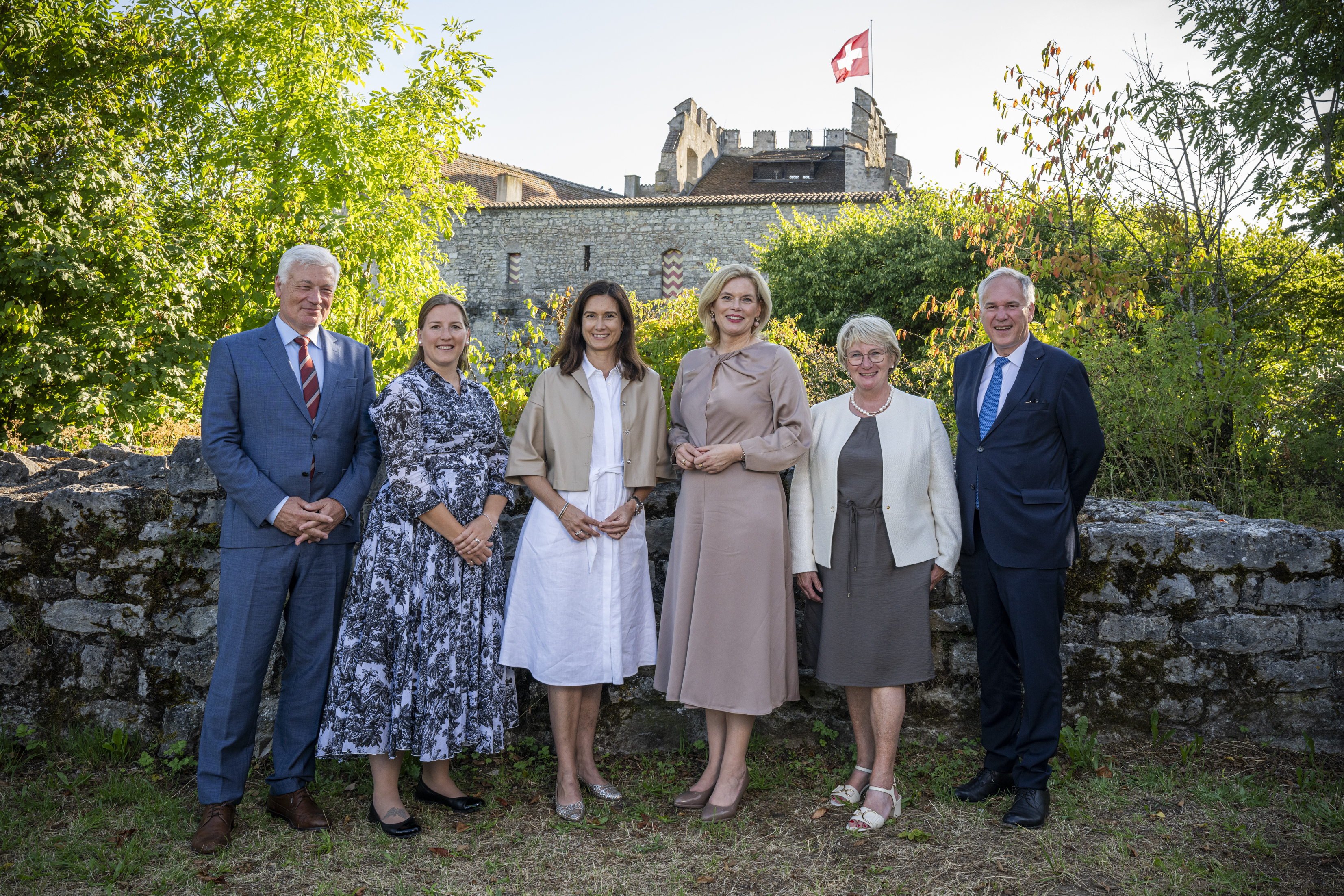The conference, which has been held annually since 2016, was launched on the initiative of Norbert Lammert, president of the German Bundestag at the time. It brings together the presidents of the parliaments of Germany, Austria, Liechtenstein, Luxembourg, the German-speaking Community of Belgium, and Switzerland. The venue rotates among the participating countries; this year it was Switzerland's turn to host the event.
The participants discussed ways in which parliaments can maintain their legitimacy and ability to act, for example through modern forms of participation, transparent decision-making processes and efficient political work. The conference also provided an opportunity for in-depth bilateral discussions about the political, social and institutional developments in each country. A highlight of the trip was a visit to the Centre for Democracy Studies in Aarau, where Professor Daniel Kübler welcomed the delegation with a presentation entitled 'Democracy in Transition: Parliaments Between Government and Citizen Participation'. The presentation provided the backdrop for a lively discussion on the future of representative democracy.
The first day of the conference ended with an evening event at Habsburg Castle – a place with deep historical significance for the region.
On the second day, the delegation visited the Paul Scherrer Institute (PSI) and the Park Innovaare innovation campus in Villigen. PSI is Switzerland's largest research institute and provided the visitors with an insight into its internationally renowned facilities in the fields of energy, health, and materials research. The visit focused on how science can contribute to solving specific societal challenges, such as the energy transition, and improving cancer therapies.
Ms Riniker was joined by the president of the German-speaking Community of Belgium, Patricia Creutz-Vilvoye, the president of the German Bundestag, Julia Klöckner, the vice president of the Landtag of Liechtenstein, Franziska Hoop, the president of Luxembourg's Chamber of Deputies, Claude Wiseler, and the president of the Austrian National Council, Walter Rosenkranz.
